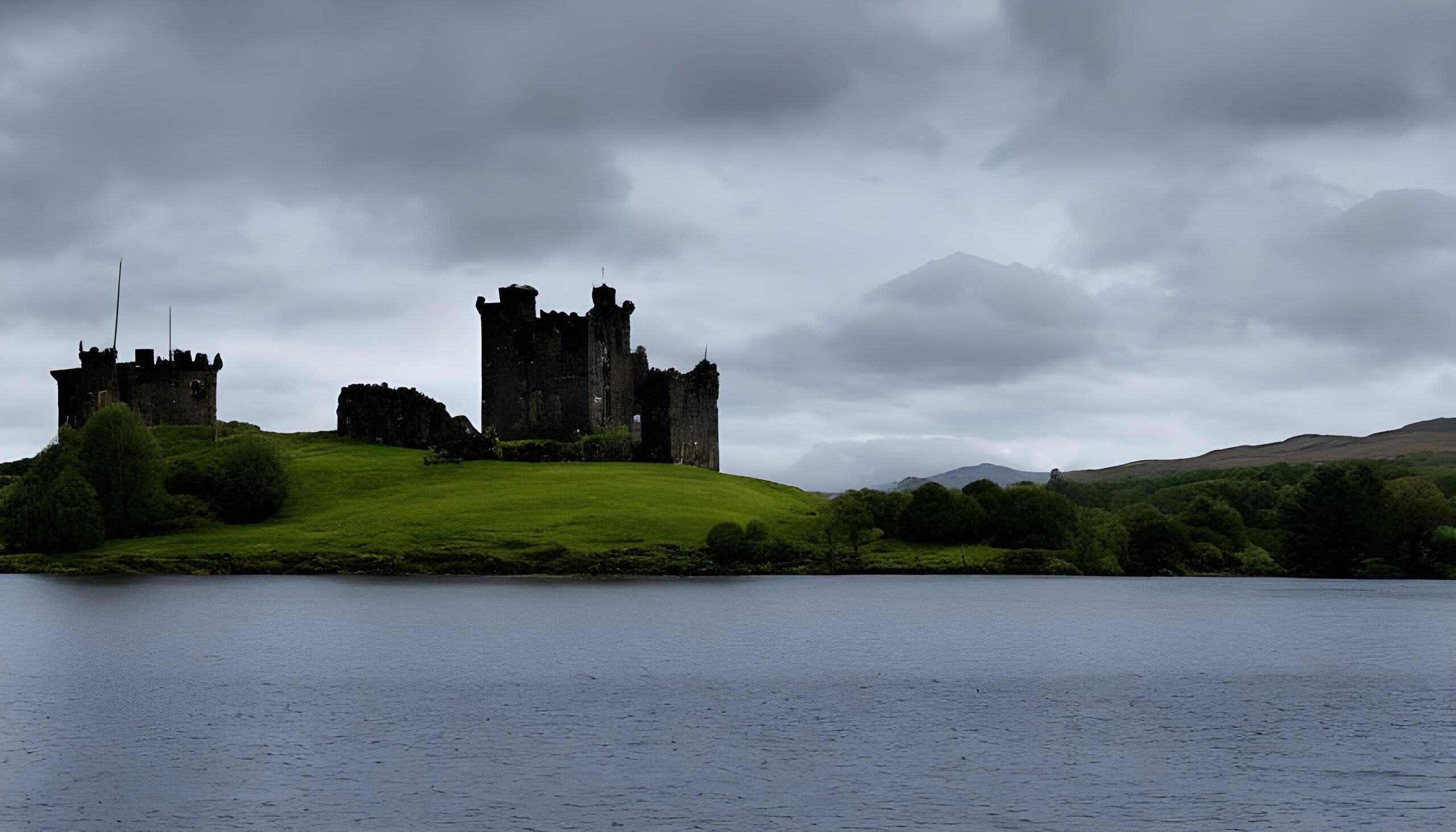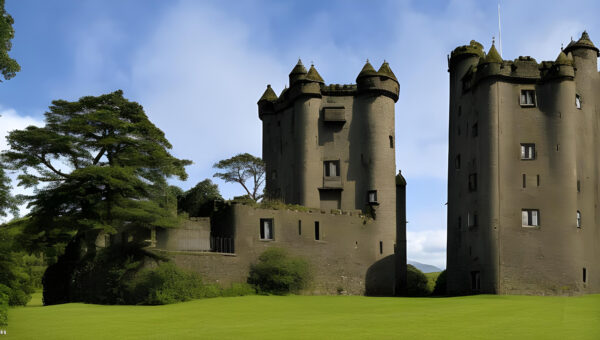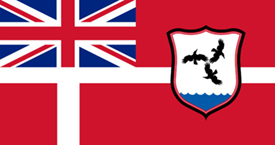
Minutes south of Loch Noone, the township of Pentagel is home to a 15th century castle whose single, dark Gothic tower was later rebuilt in 1844, after a termite epidemic revealed a framework of rotting wood, rather than stone.
Beckfordshire’s Pentagel Castle was the site of the Holy Wars of 1612-1619, as well as the Holy Wars of 1620, the Holy Wars of 1621, and of 1623. The fortress at Pentagel Castle dates back to the reign of David the 1st in the 12th century when he wasn’t feeling so woozy.

The 13th Century St. Nevil’s Tower is all that remains of what wasn’t stolen, looted or burned during the concluding Holy War season, with its stunning finale episode of debauchery colliding with pristinism, on the 12th of February 1223, when the local order of Pelletine monks ran into the streets, conclusively pressing their shaven testicles against the windows of all the cottages of Pentagel*, and effectively marking the decline and fall of the reign of the religious Right.
*The windows have since been cleaned, and by the 18th century, window-cleaning, once viewed as a shameful trade became instead a celebration of the freedom to worship, complete with a fireworks ceremony and Pelletine Monk effigies being tossed onto a pyre until the local idiots hump them into formal submission as penance. It’s really quite a lot of entertainment, for the humble 50p admission.
The town of Noone (population 0) is a civic formality established for visitors of the lake (or Loch, as it prefers to be called). It appears to be largely unvisited, but the more shrewd visitors can spot the Visitor center by scanning the horizon for a small outhouse-sized shack, with a full service customer service window open 11:00-15:00. In the vicinity there is also a small Grilled Cheese food truck, selling Loch Noone souvenirs as well as a truly impressive array of grilled cheese sandwiches and Cornish novelties (largely remaindered or soiled Christmas crackers, and holiday noisemakers, also a perfect last-minute buy if you’re heading off to go raving in Grantlepool).
Further south, Loch Blöch (pron. bllecch) is the most classically picturesque in the Pentagel county, resulting in a confusion amongst the tourists who arriving “wanting” in their expectations, imagining some old condom hanging on a tree, or a crushed, soiled milk carton by the edge of the water; but no, not even one of those single-serving kinds; Loch Bloch doesn’t have any of that. It’s clean.
Near Filstonbury Tor, not far from Sanstonbury Tor and Basaltsbury Down, ancient spiritual sites of pagan origin (originally pronounced “Fagen”), then post-pagan, ur-pagan and now, Christian worship sites, not terribly much is going on.
